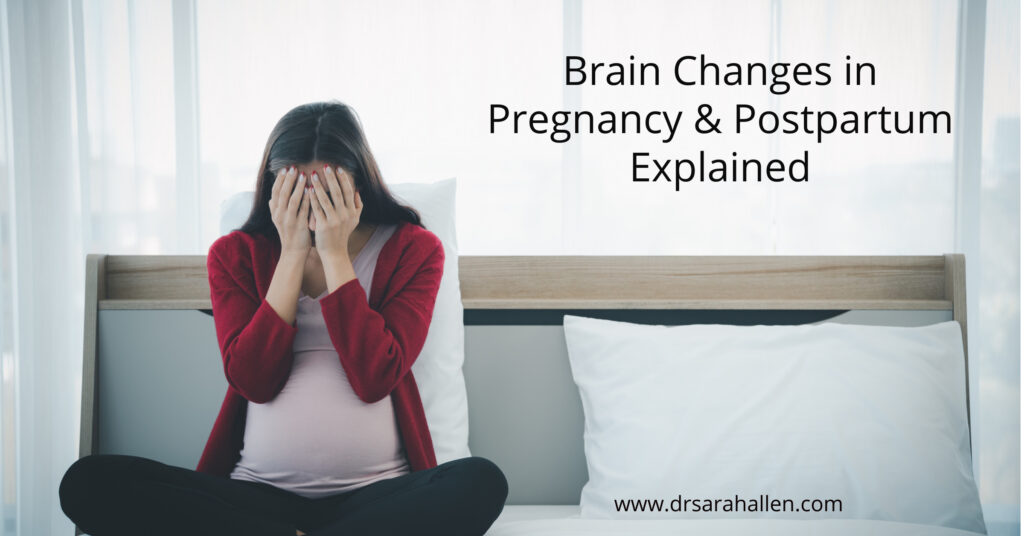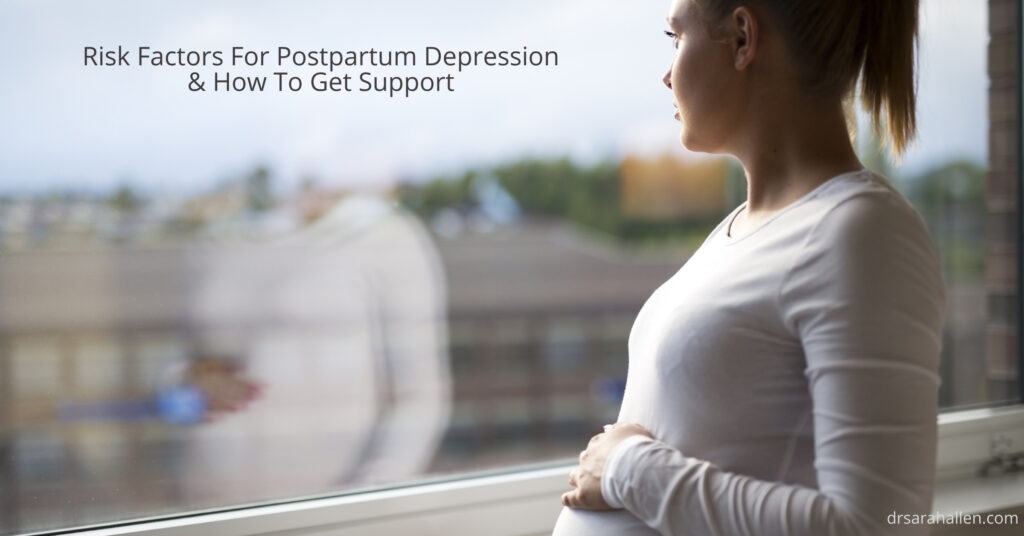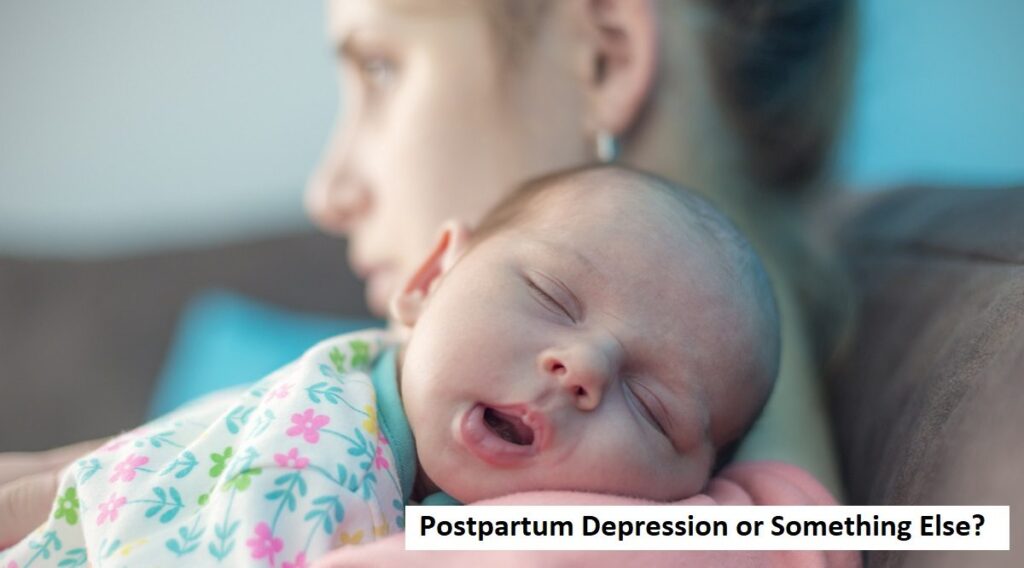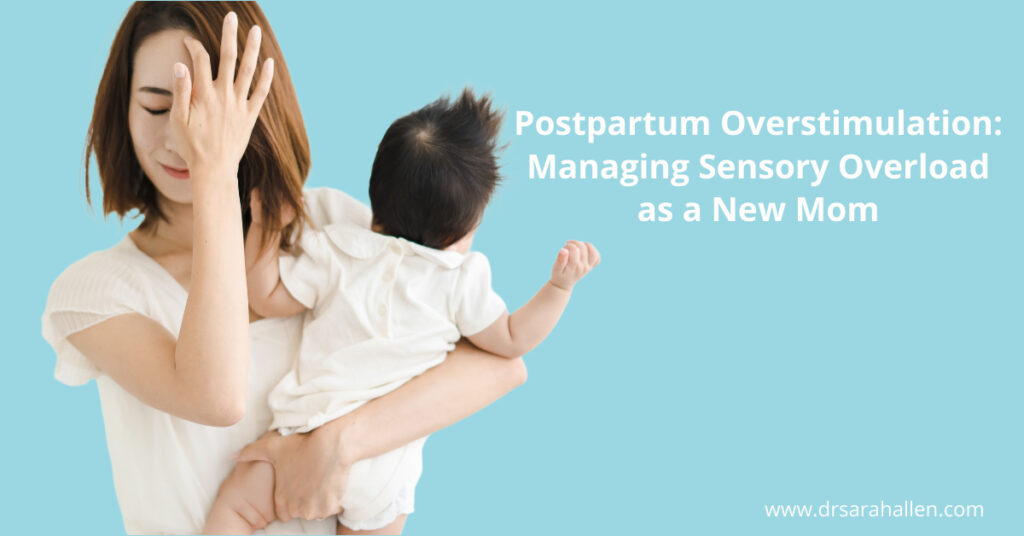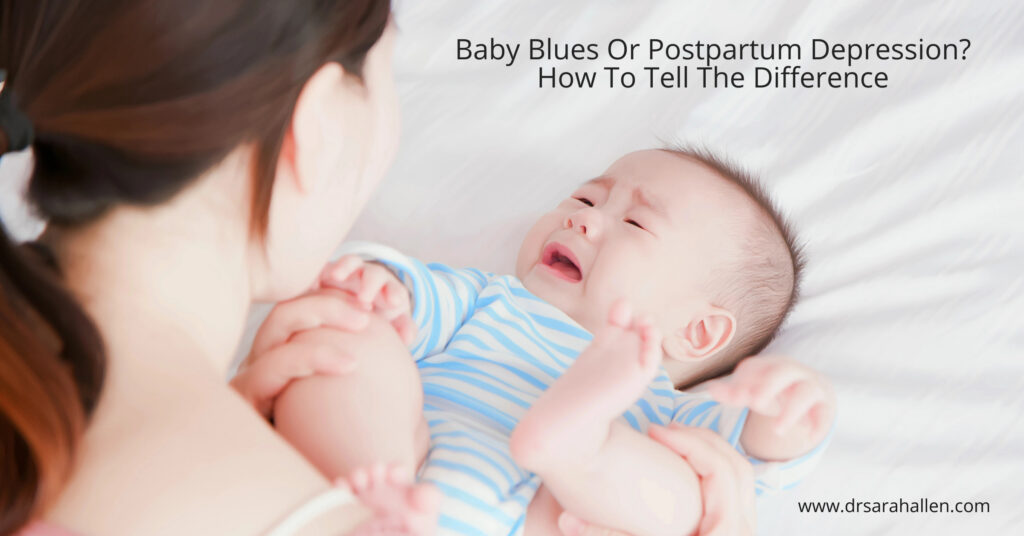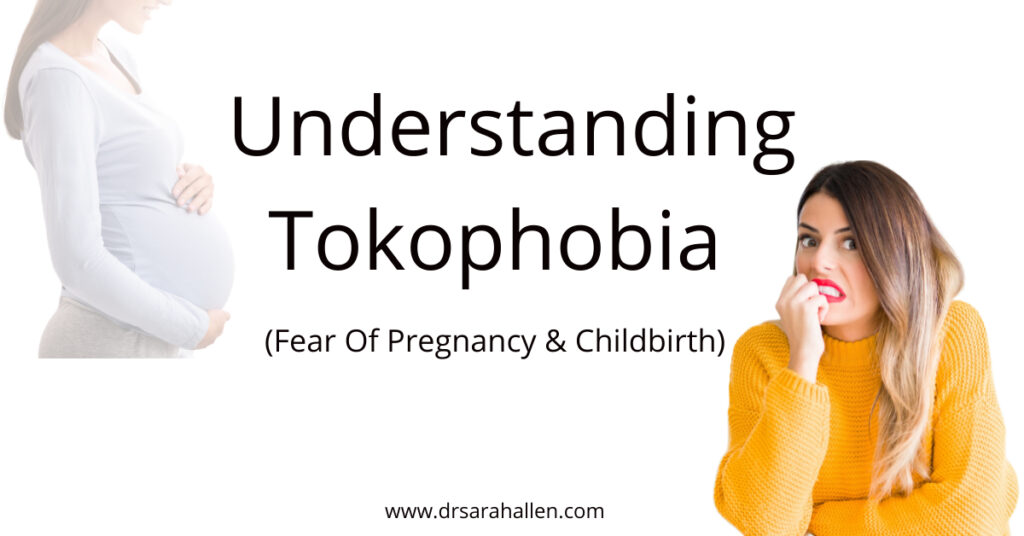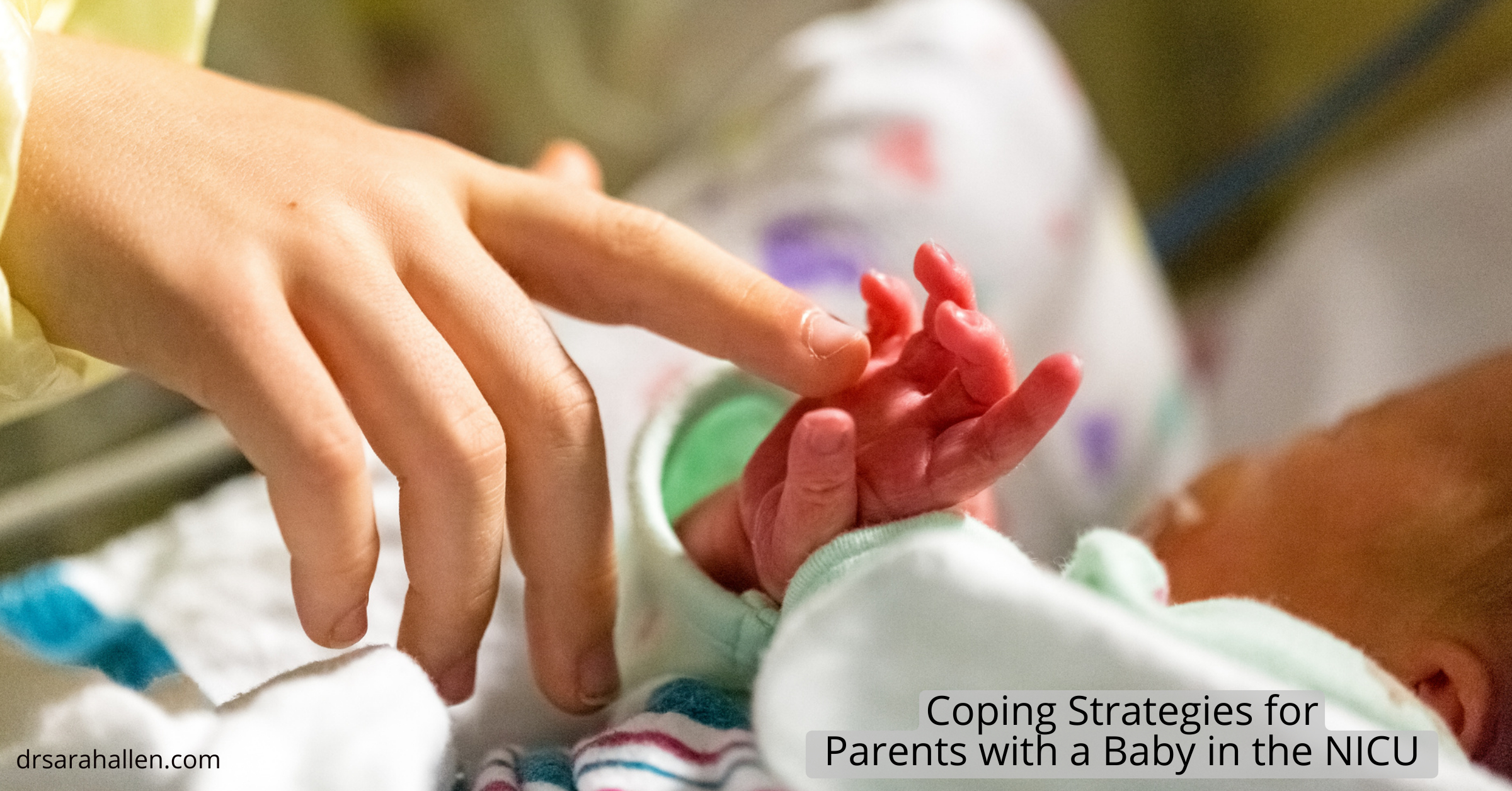
Becoming a parent to a newborn in the Neonatal Intensive Care Unit (NICU) can be emotionally and mentally challenging. The rollercoaster of emotions, fears, and uncertainties accompanying this phase can strain your mental health and cause immense stress. It is essential to prioritize self-care and establish effective strategies for coping with the impact that NICU admission may have on your emotions and mental wellbeing.
As you embark on the NICU journey with your newborn, it’s vital to remember that setting aside time to nurture your mental health is not a luxury but a necessity. By implementing these coping strategies and practices, you’ll foster a healthier emotional environment for yourself and your baby, creating a strong foundation for a positive future together.
In this blog post I explore practical coping mechanisms and tips to maintain your mental health when your baby is in the NICU and along the way, you’ll discover how to:
Set Realistic Expectations for the NICU Journey
Being prepared for the ups and downs of the NICU experience can provide some emotional stability during this trying time. Understand that your baby’s progress may be slow and filled with setbacks. Keep in mind that every child’s NICU journey is unique and avoid comparisons with other babies in the unit. Discuss openly with your baby’s healthcare team and seek their guidance in setting attainable milestones for your baby’s recovery.
Engage in Consistent Self-Care
A strong foundation of self-care is crucial during your baby’s time in the NICU. Maintaining your physical and emotional wellbeing will enable you to better care for your child. Consider the following tips:
- Get Enough Sleep: Exhaustion can exacerbate stress and emotions. Prioritize restorative sleep as much as possible – ask for help with chores, take short naps when your baby is resting, and create a quiet sleep environment.
- Eat Well: Nutrient-dense meals provide energy, which can be essential during this period. Prepare balanced meals, incorporate lots of fruits and vegetables, and try to maintain a consistent eating schedule.
- Exercise: Physical activity has proven mental health benefits. A brisk walk or a quick yoga session can relieve stress and boost your mood. Consult your doctor on suitable exercise routines post-delivery.
- Schedule Self-Care Time: Set aside dedicated time for activities that promote relaxation, such as reading, meditation, or hobbies. This will help recharge your batteries and alleviate emotional stress.
Seek Support from a Vast Network
A strong support system can significantly impact your ability to cope during your baby’s NICU stay. Here are some helpful ways to seek support:
- Communicate Openly with Your Partner: Share thoughts, feelings, and concerns together. It is essential for both parents to find solace in each other’s company.
- Connect with Other NICU Parents: Many hospitals have parent-to-parent support programs or NICU-related support groups. Connecting with others going through the same experience can provide validation and reassurance.
- Utilize Professional Services: Licensed mental health professionals, such as therapists or social workers, can offer valuable guidance and support in navigating the NICU journey.
- Reach Out to Friends and Family: Don’t hesitate to delegate specific tasks to friends and family members. Let them know how they can best assist you during this time.
Foster Connection and Bonding with Your Baby
Despite the medical interventions and circumstances surrounding your baby’s NICU stay, establishing a bond is possible and incredibly important for both you and your child. Some ways to foster connection include:
- Touch and Skin-to-Skin Contact: Hold your baby whenever possible, following their medical team’s guidance. Skin-to-skin contact, or kangaroo care, can provide healing benefits for both baby and parent.
- Talk and Sing to Your Baby: Conversing with your baby or singing lullabies can help familiarize them with your voice and create a soothing atmosphere.
- Be Present during Care Routines: Participate in your baby’s care routines such as diaper changes, cleanings, and feedings when feasible. This involvement will not only strengthen your bond but also develop your confidence in caring for your baby.
Conclusion
Navigating the emotional journey of having a baby in the NICU can be strenuous, but prioritizing your mental health is essential for both you and your family. By implementing the coping strategies discussed, you can create a supportive and nurturing environment for your baby, while strengthening your resilience. Remember, acknowledging and processing your emotions is not a sign of weakness. Approach each day with kindness, compassion, and grace towards yourself and your family.
Are you struggling to cope with the emotional toll of having a baby in the NICU? Please reach out for support, you don’t have to go through this alone.

Dr. Sarah Allen has 25+ years of experience in private practice helping women to transition to being the mom they want to be. She is the Founding Director of the statewide non-profit Postpartum Depression Alliance of IL. She also specializes in pregnancy loss & infertility & has published research on postpartum depression and traumatic childbirth.
If you would like to work with Sarah, please phone her at 847 791-7722 or on the form below.
If you would like to read more about me and my areas of specialty, please visit Dr. Sarah Allen Bio. Dr. Allen’s professional license only allows her to work with clients who live in IL & FL & the UK and unfortunately does not allow her to give personalized advice via email to people who are not her clients.
Dr. Allen sees clients in person in her Northbrook, IL office or remotely via video or phone.

What Can I Read That Helps Me While I Am Waiting For My First Appointment With Sarah?
If you feel that you may be experiencing pregnancy or postpartum mood disorder, or worry that you may be at risk of developing it, please download my free booklets below.
See each specific webpage to download one or many.

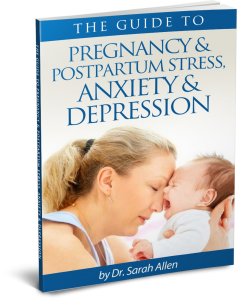
As featured in
Dr. Sarah Allen has 25+ years experience helping women transition to being the mom they want to be. She is also the Director of the Postpartum Depression Alliance of IL, a non-profit she started 20 years ago that offers information and support to pregnant and postpartum moms and their families. She has published research on postpartum depression and PTSD after traumatic childbirth and presented at conferences about her work with new moms. You can read her biography here About Sarah
Dr. Allen sees clients via telephone or video counseling in Illinois and Florida .


